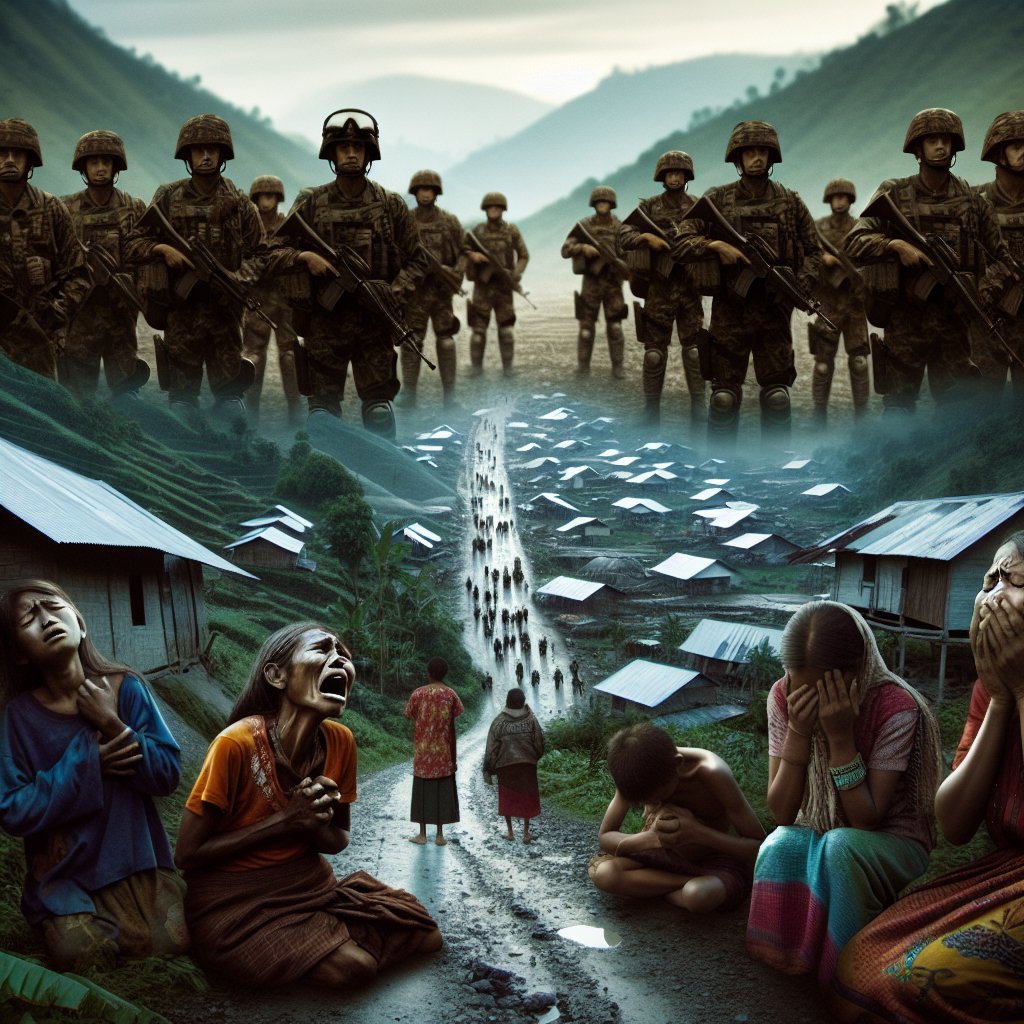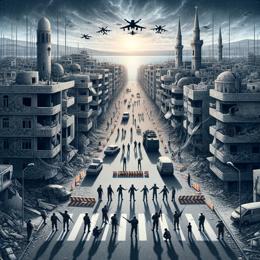Content created by AI
Families Demand Justice as Anguish Grows over Alleged Custodial Deaths in Kashmir
The recent deaths of three civilians in Indian-administered Kashmir, who were reportedly detained by the Indian army and later found dead, have sparked widespread anger and calls for justice from local communities. The deceased, identified as Mohammad Showkat, Safeer Hussain, and Shabir Ahmad, all from the tribal Gujjar community, bore signs of torture according to their relatives, intensifying the demand for an investigation into what they allege are custodial killings.
The incident unfolds in a complex backdrop following a guerrilla attack, after which the three men were picked up by the military from Topa Pir village in Poonch district. The bereaved families have voiced their anguish and disbelief, especially given that one of the victims, Hussain, was the brother of a retired Border Security Forces serviceman. Despite the promise of jobs and compensation by the government, the families are adamant that no monetary compensation can alleviate their grief and loss.
The Indian army's terse response, stating that the matter was under investigation, and the absence of clear details about the detainees' circumstances have done little to quell the concerns and the growing discontent among the villagers. A statement issued by the Indian army on social media and the public declaration of compensation have only fueled speculation about the involvement of the armed forces in these deaths.
The tension in Kashmir has been escalating, especially since the abrogation of Article 370 by the Indian government in 2019, which led to the detention of numerous rights activists, politicians, and journalists. The regional political atmosphere remains fraught, with the central government's stringent control being met with civil unrest and an increasingly skeptical public, reflected in the protests demanding justice not just in Poonch but also in Srinagar, 200km to the north.
Moreover, the claim that five other villagers were subjected to physical abuse and are now undergoing treatment in a hospital, as well as allegations of explicit torture techniques being used, has caused an outcry among human rights organizations and local political factions. The controversial Armed Forces (Special Powers) Act (AFSPA), which offers extensive legal immunity to military personnel, remains at the center of the dispute, with activists and international bodies repeatedly calling for its repeal, citing a history of allegation about human rights abuses that have gone unredressed due to the protections offered by the Act.
The recent events have drawn sharp criticism and raised questions about accountability within the Indian armed forces, the integrity of the state's investigation procedures, and the extent of civilian freedoms and rights. As the valley reels from these deaths, the echo of past injustices, such as the killings in Rajouri in 2020 and the subsequent turmoil after an officer's life sentence was suspended, casts a long shadow over any prospect of swift justice.
The insistence on a transparent investigation by the families of the deceased and the tribal community is a testament to their determination to seek truth and justice amidst their troubled surroundings. As this story develops and pressures mount, national and international eyes remain fixed on how the Indian state will respond to the tensions in this strife-torn region.










